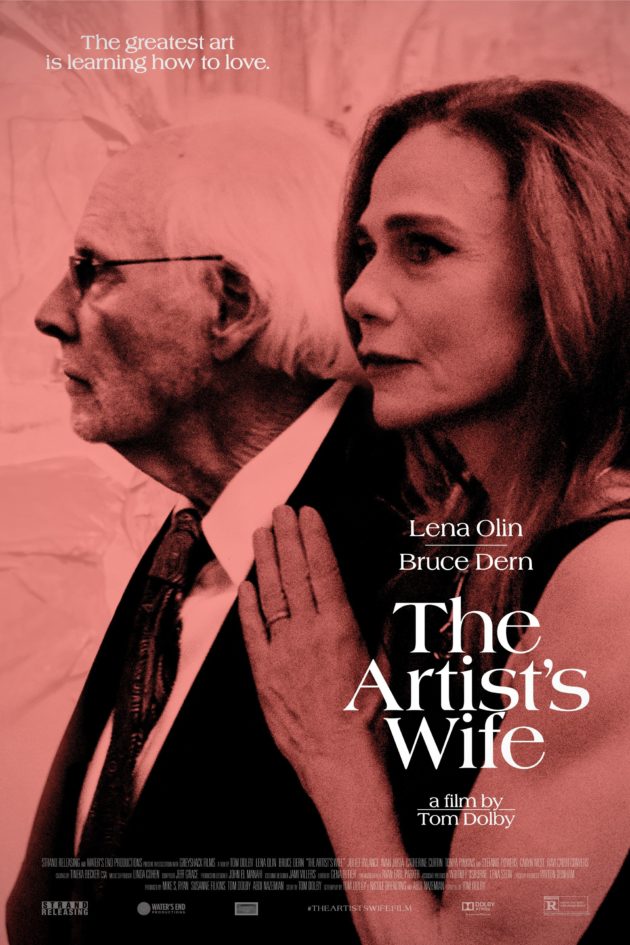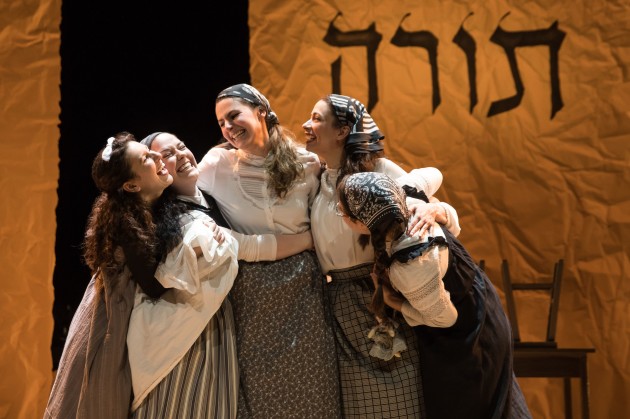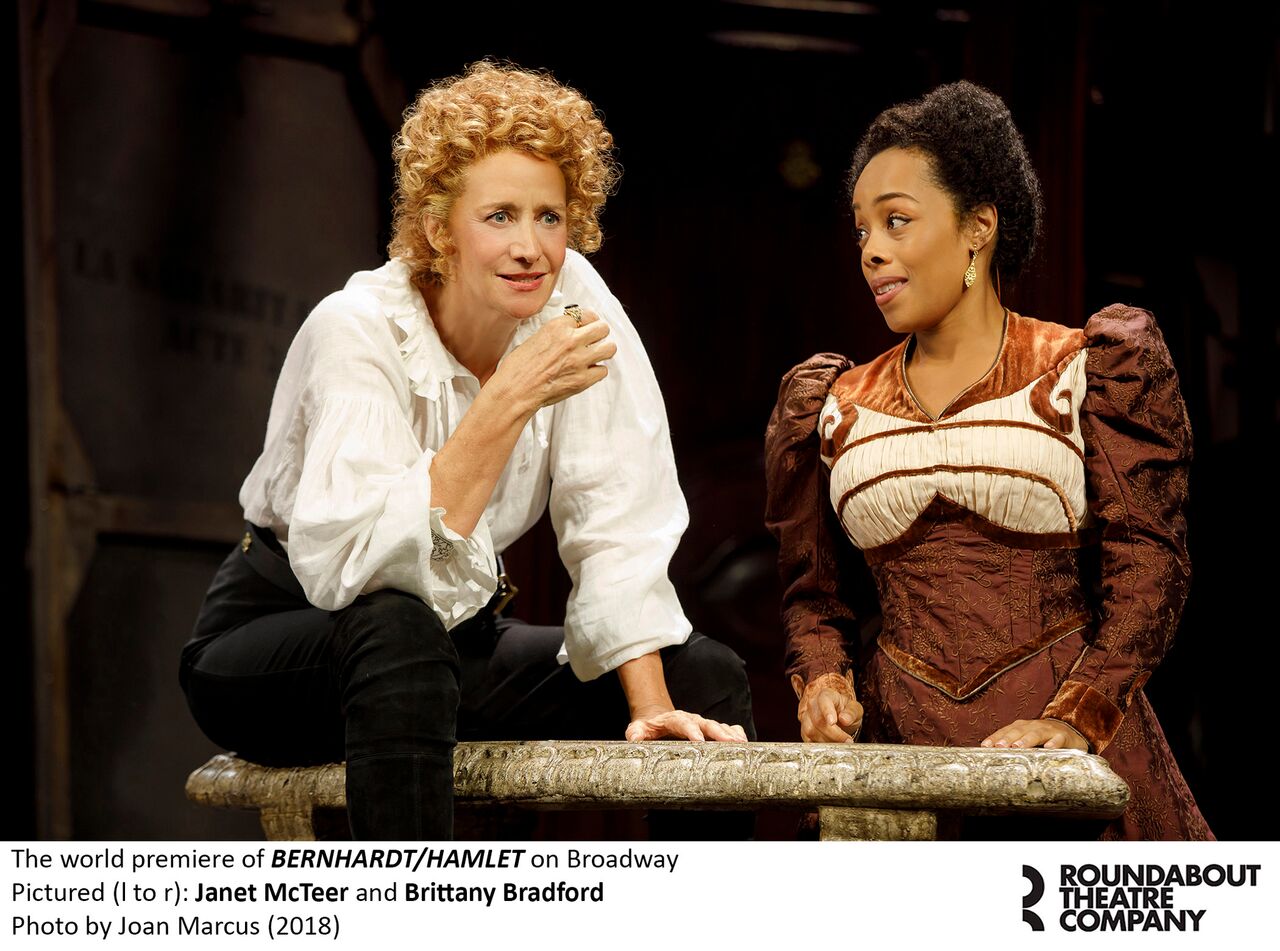Author Archives: Aileen Jacobson
October 13, 2020 by Aileen Jacobson
Old and New Wives’ Tales

Can you imagine a movie titled “The Artist’s Husband” about a man who abandoned his own budding career as a painter so he could cater to his wife’s needs and help her achieve fame and fortune? Or a book and a movie titled “The Husband,” about a man who goes far beyond secretly editing his wife’s books so she can enjoy literary acclaim—and, oh, also sleep with many other men? And how about the spouse of a woman in a high government position who writes an autobiography that in part examines his cascade of decisions that subordinate his life to hers? Let’s call it “Not Becoming.” And then there is the television tale of the Hasidic husband who has to run away from his wife and his community to fulfill his desire to make music and to control his life. Well, that might still be called “Unorthodox.”
These gender-reversed summaries of recent works in different genres illustrate how unlikely it is that someone would write or film anything like them—unless meant as a satire. However, the just-released movie “The Artists’ Wife,” the book and movie “The Wife,” Michelle Obama’s memoir “Becoming” (non-fiction) and the television series “Unorthodox” are each serious and thoughtful examinations of the evolving role of a wife (at least in households that are artistic, educated and financially stable). Each offers at least a glimmer of hope that the role is changing. But put “husband” in place of “wife,” and you notice that our society still has a long way to go toward equality in marriage.
(more…)- No Comments
September 29, 2020 by Aileen Jacobson
Harbor From the Holocaust: The Jews of Shanghai
By Aileen Jacobson
In 1941, Laura Margolis, the American Joint Distribution Committee’s first female field agent, was sent to Shanghai to help the nearly 20,000 Jews who had fled there to escape Nazi Germany’s persecution. In an audacious move, she negotiated with the Japanese officials who controlled Shanghai and was able to secure funds (partly from Russian Jews and other communities who had found shelter in China in previous generations) to build a hospital and expand a soup kitchen. She saw to it that the neediest refugees got at least one meal a day to keep after they were forced, in 1943, into a mile-square area known as the “Shanghai ghetto.” The thousands of Chinese people who already lived there stayed.
(more…)- No Comments
December 19, 2019 by Aileen Jacobson
Maiden, Sorceress and Stepmother on Stage, Yiddish-Style

Image courtesy of National Yiddish Theatre Folksbiene
I was a little skeptical when I learned that the National Yiddish Theater Folksbiene—the company that brought us the excellent Yiddish “Fiddler on the Roof” and “Hannah Senesh”—was going to present “The Sorceress,” an operetta that was the first formal Yiddish theatrical production in America. Written in 1878 by Avrom Goldfaden, it centers on an innocent young woman suffering at the hands of a devious stepmother and her cohorts, led by the evil title character, traditionally played by a man, as it is here.
I suspected it would not be feminist. But, I thought, maybe the director and others who restored the play (a massive effort) and created this version find ways to make demeaning stereotypes more palatable for modern audiences.
Or did the play (“Di Kishemakherin” in Yiddish) actually already depict strong Jewish women in a powerful and provocative way? Was it feminist in 1878 and is it feminist in 2019?
- No Comments
August 7, 2019 by Aileen Jacobson
The Extraordinary Bravery and Short Life of Hannah Senesh Come to Life in the Revival of a Valuable Play
By all rights, Hannah Senesh should be as widely known and beloved as Anne Frank. Both were young Jewish women who confided their dreams and struggles during the Holocaust to their diaries in bright and sharply observed entries. Both their stories are moving and inspiring, revealing a steadfast spirit and a lively intelligence.
Some people may know her poems, one of which—”Eli, Eli,” has become a poignant liturgical standard. Some may remember Senesh’s story of extraordinary courage, and now more people will, thanks to a play that just opened at the Museum of Jewish Heritage in New York. “Hannah Senesh,” which includes music, dance and songs based on poems Senesh wrote, brings the young idealist to urgent life.
She emigrated from her native Hungary to Palestine in 1939 and, a few years later, volunteered to parachute behind Nazi lines to save other Jews, an arduous and dangerous venture. She was part of a Jewish contingent in a larger British plan to rescue downed English fighter pilots, after which the Jews could attempt their own rescues.
In the play, we first meet Hannah at age 13 and stay with her during the next decade of her eventful life. She starts out as a giddy teenager, announcing she’s a vegetarian as she waves around a stick of celery and tries to figure out how to modify the frilly pink party dress her mother has bought her so that it is more to her liking.
- No Comments
April 10, 2019 by Aileen Jacobson
A Feminist Takes on the Constitution—Live on Broadway
The easiest word to overlook in the title “What the Constitution Means to Me” is the “me.” The exceptionally moving and surprisingly entertaining play by Heidi Schreck now running at the Helen Hayes Theater on Broadway is about the Constitution, of course.
But it is also about Schreck—who plays herself, the central character—in resonant personal ways: Consider the story she tells of her own great-great grandmother, brought to America when she was purchased for $75 through a matrimonial publication, later placed in a mental institution and dead at age 36 of what the death certificate called “melancholia.” Domestic violence may have been part of the cause.
- No Comments
February 26, 2019 by Aileen Jacobson
Fiddler on the Roof (in Yiddish!) and Feminism
 Performing “Fiddler on the Roof” in Yiddish isn’t just a gimmick. The intimate production now playing at Manhattan’s Stage 42 adds warmth, depth and freshness to the all-too-familiar 1964 musical. It invites a new focus on the meanings of a show that starts out celebrating “Traditsye,” as the rousing opening number is called, and then delineates the demise of some of those notably sexist traditions, like arranged marriages and fathers deciding the fates of their daughters. And yet it’s bittersweet, as these new viewpoints arrive in the midst of a painful ripping apart of a vibrant, cohesive community. This National Yiddish Theatre Folksbiene production played for six months at the Museum of Jewish Heritage on Battery Place, where it extended and sold out four times, before moving uptown to 42nd Street, a more convenient location for many theatergoers.
Performing “Fiddler on the Roof” in Yiddish isn’t just a gimmick. The intimate production now playing at Manhattan’s Stage 42 adds warmth, depth and freshness to the all-too-familiar 1964 musical. It invites a new focus on the meanings of a show that starts out celebrating “Traditsye,” as the rousing opening number is called, and then delineates the demise of some of those notably sexist traditions, like arranged marriages and fathers deciding the fates of their daughters. And yet it’s bittersweet, as these new viewpoints arrive in the midst of a painful ripping apart of a vibrant, cohesive community. This National Yiddish Theatre Folksbiene production played for six months at the Museum of Jewish Heritage on Battery Place, where it extended and sold out four times, before moving uptown to 42nd Street, a more convenient location for many theatergoers.
Within the comfortable fold of “Fiddler,” the production’s English translations hardly seem necessary. Many theatergoers know the dialogue and lyrics by heart. Or think they do. Reading the English words as they are projected on the set forces a new kind of attention.
- 1 Comment
December 4, 2018 by Aileen Jacobson
“Do You Know What Meshugge Means?”
She was meshugge,” Gladys, the strong-willed octogenarian played by Elaine May in “The Waverly Gallery,” says lightly about a relative. Then she leans over conspiratorially to her young-adult grandson Daniel, with whom she’s discussing family history, and asks, “Do you know what that word means?”
He tells her twice—louder the second time—that he does, but she hasn’t heard him. “It means kooky, you know: a little nutty,” Gladys explains in this gentle bit of humor that helps to signal that this is a play about a Jewish family.
- 1 Comment
November 6, 2018 by Aileen Jacobson
Gloria Steinem’s Life, Onstage

(L-R) Joanna Glushak, Fedna Jacquet, Francesca Fernandez McKenzie, Christine Lahti, Patrena Murray, DeLanna Studi, and Liz Wisan in GLORIA: A Life by Emily Mann, directed by Diane Paulus, at the Daryl Roth Theatre. Photo © Joan Marcus.
As I entered a Midtown Manhattan building a couple of years ago, I spotted a slim familiar-looking woman with blond hair rushing out. Wide-eyed, I asked the two thirty-something security guards–one male, one female–“Was that Gloria Steinem?”
They replied, “Who’s Gloria Steinem?”
A few days later, I related my astonishment about the guards’ reaction to two other thirty-somethings–one male, one female–whom I know to be college-educated, media savvy and squarely in favor of equality for women.
They, too, asked, “Who’s Gloria Steinem?”
- No Comments
October 11, 2018 by Aileen Jacobson
The Chutzpah of Sarah Bernhardt
 Sarah Bernhardt had chutzpah. This illegitimate daughter of a Dutch Jewish courtesan had already gained wide renown as the best actress of her day when she decided to take on an exceptionally high-profile, high-risk role: She wanted to play Hamlet. Not girlfriend Ophelia or mother Gertrude, but the Danish prince himself, considered by many to be Shakespeare’s most difficult and iconic character.
Sarah Bernhardt had chutzpah. This illegitimate daughter of a Dutch Jewish courtesan had already gained wide renown as the best actress of her day when she decided to take on an exceptionally high-profile, high-risk role: She wanted to play Hamlet. Not girlfriend Ophelia or mother Gertrude, but the Danish prince himself, considered by many to be Shakespeare’s most difficult and iconic character.
It was a glass-ceiling-breaking move, one among several in Bernhardt’s career, and it inspired playwright Theresa Rebeck to build a play, set in 1897, around Bernhardt’s struggles. First Bernhardt had to overcome the dismissive skepticism of some men: “It’s grotesque. If Shakespeare meant for Hamlet to be a woman, he would have named the play ‘Hamlet princess of Denmark,” Rebeck has one critic protest.
- 1 Comment
September 21, 2018 by Aileen Jacobson
A Forgotten Lillian Hellman Play That Deserves Another Chance
Set in a small town in Ohio and revolving around a workers’ strike at a brush factory, Lillian Hellman’s little-known play, “Days to Come,” was a resounding flop when it debuted on Broadway in 1936. Hellman, who had enjoyed great acclaim for her first play, “The Children’s Hour,” went on to even wider success and fame with her next play, “The Little Foxes.”
But at the opening night of this one, her second-born, as she recalled in her 1973 memoir “Pentimento,” she stood at the back of the theater, sensed that things were going wrong, and vomited. Then she saw William Randolph Hearst and his six guests walk out during the second act. Bad reviews and a quick closing followed.
- No Comments
 Please wait...
Please wait...